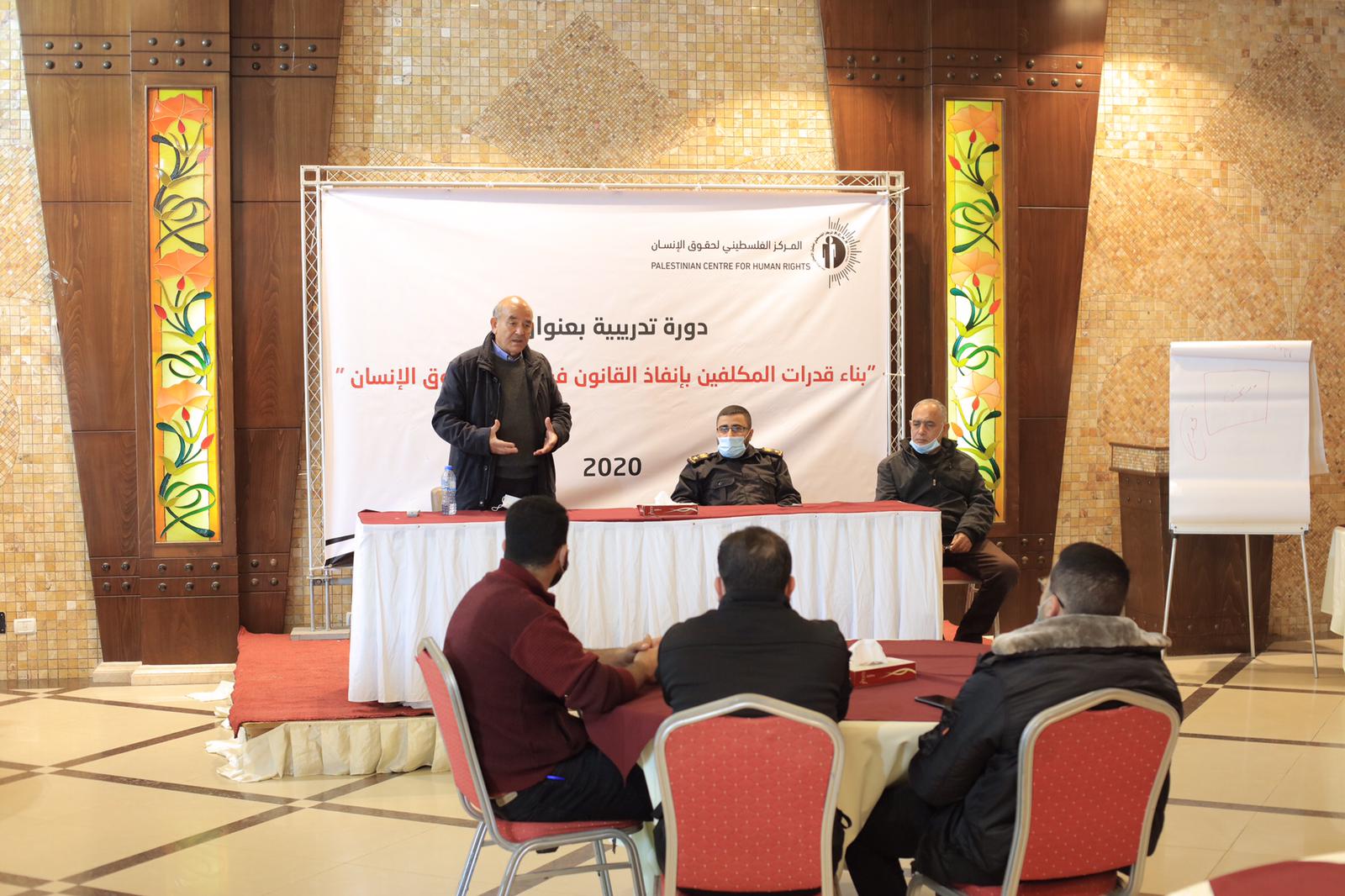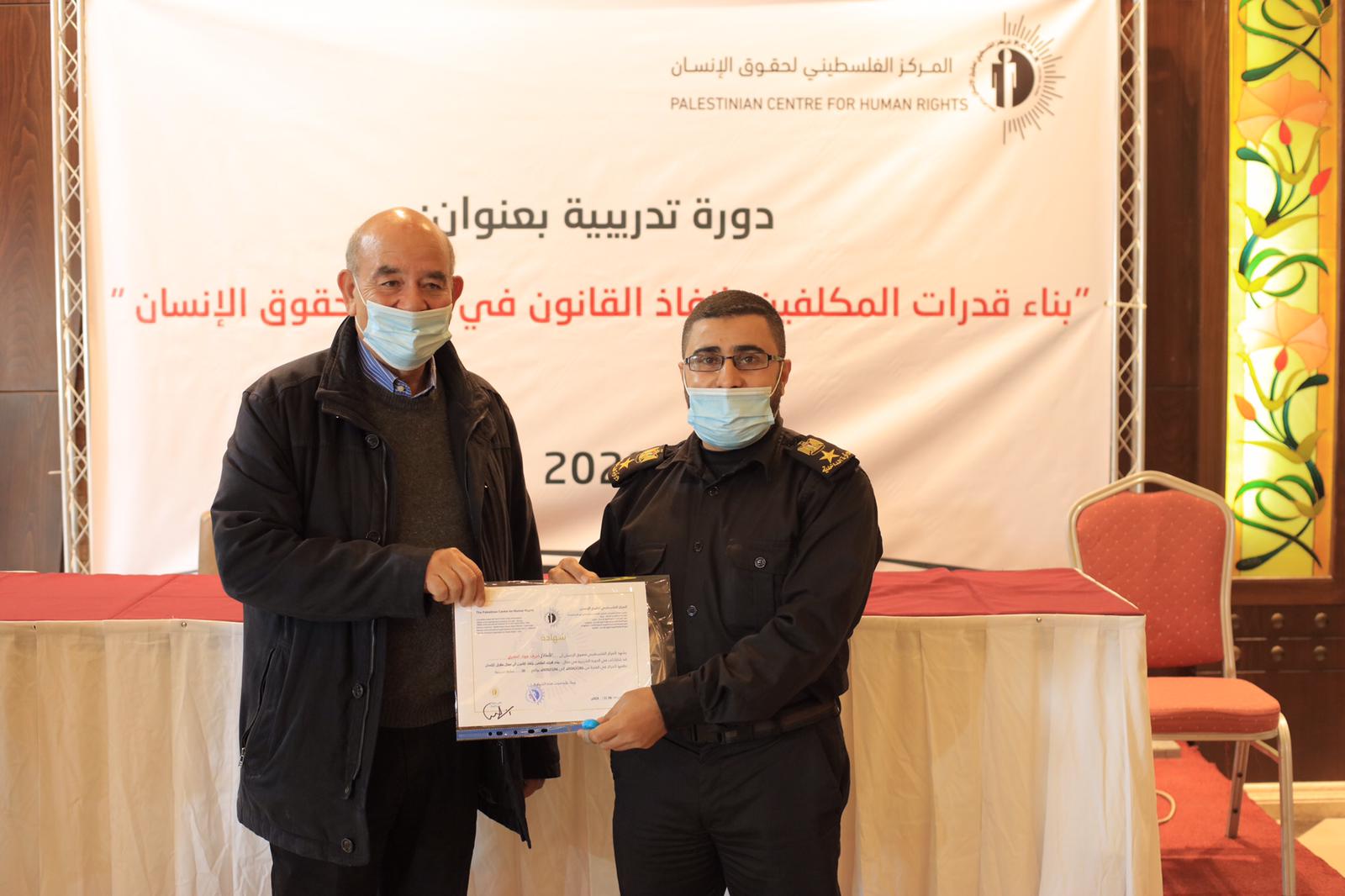
Ref: 50/2020Date: 07 December 2020
On Sunday, 06 December 2020, the Palestinian Centre for Human Rights (PCHR) concluded a training course: “Capacity Building on Human Rights for Law Enforcement Bodies.” The training course was attended by 20 members and officers of the General Directorate of Reform and Rehabilitation Centers at the Ministry of Interior in Gaza. The 20-hour-training course was held over the course of 4 days, from 02 to 06 December 2020, in Gaza City.
This training course comes within the framework of PCHR’s long-term efforts to mainstream human rights principles, build the capacity of law enforcement bodies in the field of human rights and to promote knowledge and skills related to international standards and domestic legislation that guarantee human rights, especially with respect to the treatment of prisoners in the Reform and Rehabilitation Centers.
The training program included topics that address the needs of the targeted group: the International Bill of Human Rights with its three components, the concepts of international humanitarian law, standard minimum rules for the treatment of prisoners in the Reform and Rehabilitation Centers, the code of conduct for law enforcement officials, best procedures for dealing with prisoners’ complaints, Palestinian Penal Procedures Law, Reform and Rehabilitation Centers Law, as well as the Convention against Torture and Other Cruel, Inhuman or Degrading Treatment or Punishment.
At the end of the course, PCHR held a closing ceremony where Lawyer Raji al-Sourani, PCHR’s Director, said that creating a training unit was among PCHR’s top priorities, to ensure proper dissemination of the culture of human rights across Palestinian society. Sourani stressed that this training course aims at familiarizing staff at reform and rehabilitation centers with human rights principles and standard minimum rules for the treatment of prisoners in accordance with international standards as well as complaint mechanisms as a means of promoting and respecting prisoners’ rights within a rights-based approach. Additionally, the training course warranted significant focus to strengthening preventive measures against torture; and creating the proper environment for accountability. Sourani called on participants to integrate human rights principles into their daily work and to contribute to enhanced social awareness of human rights.
For his part, Shareef Al-Masry, Director of the Training Unit at the General Directorate of Reform and Rehabilitation Centers at the Ministry of Interior, highlighted the importance of holding such training courses for personnel at reform and rehabilitation centers to enhance and develop their capabilities in this field, calling for strengthening joint-cooperation between PCHR and the General Directorate of Reform and Rehabilitation Centers. Al-Masry also praised PCHR’s pioneering role in disseminating the culture of human rights among all segments of society.
The participants emphasized that the training course was characterized with its rich topics, and commended trainers’ efficiency and various and interactive training methods used during the training sessions, which shed a light on many important topics that they needed to expand their knowledge on for the sake of improving their skills.
At the end of the ceremony, the participants received participation certificates.
… [Trackback]
[…] Read More here on that Topic: pchrgaza.org/pchr-concludes-training-course-on-capacity-building-on-human-rights-for-law-enforcement-bodies/ […]